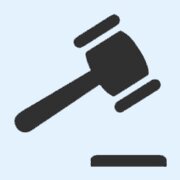Best Debt & Collection Lawyers in Houston
Share your needs with us, get contacted by law firms.
Free. Takes 2 min.
List of the best lawyers in Houston, United States
About Debt & Collection Law in Houston, United States
Debt and collection law in Houston, part of the broader U.S. legal framework, governs how debts are collected and the rights of both creditors and debtors. This field of law covers consumer debts such as credit card loans, personal loans, medical bills, and mortgages. In Houston, as in other parts of Texas, both federal laws, such as the Fair Debt Collection Practices Act (FDCPA), and state laws, apply. These laws are designed to protect consumers from abusive, unfair, or deceptive practices by debt collectors.
Why You May Need a Lawyer
Several situations may necessitate seeking legal advice in the realm of debt and collection. You may need a lawyer if you are being harassed by debt collectors, face a lawsuit from a creditor, or if you're dealing with bankruptcy proceedings. Additionally, legal assistance may be vital if there's a violation of your rights under the FDCPA or Texas Debt Collection Act (TDCA), or if you are involved in a debt settlement or negotiation process. A lawyer can help navigate these complex issues, ensuring that your rights are protected and that you are following Texas laws effectively.
Local Laws Overview
In Houston, Texas, consumer protection laws pertinent to debt and collection include the Texas Debt Collection Act, which complements federal legislation like the FDCPA, offering additional protections. The TDCA prohibits threats, harassment, and misrepresentation by debt collectors. Texas also has laws regarding judgment creditors, who must follow specific procedures to garnish wages or access bank accounts. Furthermore, Texas exemptions protect certain types of personal property from being seized in debt collection cases. Understanding these laws is crucial in effectively managing debt-related issues.
Frequently Asked Questions
What is the Fair Debt Collection Practices Act (FDCPA)?
The FDCPA is a federal law that restricts the behavior of third-party debt collectors, providing guidelines on how they can interact with debtors. The law is designed to prevent abusive, deceptive, and unfair debt collection practices.
Can debt collectors contact me at any time?
No, under the FDCPA, debt collectors cannot contact you before 8 AM or after 9 PM, unless you have agreed to it. They also cannot contact you at work if they are informed that your employer disapproves.
What if a debt collector sues me?
If you are sued by a debt collector, it is crucial to respond to the lawsuit, usually through a legal answer filed with the court. Consulting with an attorney is advisable to ensure your rights and defenses are adequately presented.
Are there any protections against wage garnishment in Texas?
Yes, Texas law provides some of the strongest protections against wage garnishment. Generally, wages cannot be garnished for consumer debts, but they can in the case of child support, student loans, or unpaid taxes.
What types of debts are covered under the FDCPA?
The FDCPA covers personal, family, and household debts. This includes credit card debts, auto loans, medical bills, and mortgages. Business debts are not covered by the FDCPA.
How do I know if a debt collector is legitimate?
Request validation of the debt in writing. A legitimate debt collector will provide their contact information and proof of the debt, including the amount owed and the name of the original creditor.
What can I do if a debt collector violates my rights?
If you believe a debt collector is violating your rights under the FDCPA or TDCA, you can report them to the Consumer Financial Protection Bureau (CFPB), Texas Attorney General's Office, or consider filing a complaint. It can also be beneficial to consult with a lawyer to explore legal remedies.
Can a debt collector take my Social Security benefits?
Social Security benefits are generally protected from garnishment by debt collectors, except for specific obligations like unpaid federal taxes or child support payments.
Is it possible to settle a debt for less than what I owe?
Yes, creditors often agree to a settlement where you pay less than the full amount owed. This can be negotiated directly or with the aid of a lawyer or debt settlement company.
How long can a debt collector attempt to collect a debt from me?
In Texas, the statute of limitations for most consumer debts is four years. After this period, a debt is considered time-barred, meaning the collector can no longer sue you for the debt, though they can still attempt to collect it.
Additional Resources
Those seeking more information or assistance with debt and collection issues in Houston can consider the following resources:
- Federal Trade Commission (FTC): Offers extensive information about consumer rights regarding debt collection.
- Consumer Financial Protection Bureau (CFPB): An agency that provides consumer education and handles complaints about financial products and services.
- Texas Attorney General's Office: Can assist with understanding rights under state laws and taking action against unlawful debt collection practices.
- Legal Aid Agencies: Organizations such as Houston Volunteer Lawyers offer free legal services to qualifying individuals.
- Texas RioGrande Legal Aid: Offers legal assistance for consumer protection issues, including debt collection.
Next Steps
If you require legal assistance for debt and collection issues, consider the following steps:
- Gather all relevant documentation, such as communications with debt collectors, financial records, and any legal notices.
- Contact a qualified debt and collection attorney in Houston. Many offer free consultations to review your case.
- Consider contacting a non-profit credit counseling service for advice on managing debt and creating a financial plan.
- If you qualify, seek assistance from legal aid organizations to access free or low-cost legal services.
- Stay informed about your rights and responsibilities under both federal and Texas state laws.
Taking these steps can help you navigate the often-complex legal landscape of debt and collection, safeguard your rights, and find a path toward financial stability.
Lawzana helps you find the best lawyers and law firms in Houston through a curated and pre-screened list of qualified legal professionals. Our platform offers rankings and detailed profiles of attorneys and law firms, allowing you to compare based on practice areas, including Debt & Collection, experience, and client feedback.
Each profile includes a description of the firm's areas of practice, client reviews, team members and partners, year of establishment, spoken languages, office locations, contact information, social media presence, and any published articles or resources. Most firms on our platform speak English and are experienced in both local and international legal matters.
Get a quote from top-rated law firms in Houston, United States — quickly, securely, and without unnecessary hassle.
Disclaimer:
The information provided on this page is for general informational purposes only and does not constitute legal advice. While we strive to ensure the accuracy and relevance of the content, legal information may change over time, and interpretations of the law can vary. You should always consult with a qualified legal professional for advice specific to your situation.
We disclaim all liability for actions taken or not taken based on the content of this page. If you believe any information is incorrect or outdated, please contact us, and we will review and update it where appropriate.















